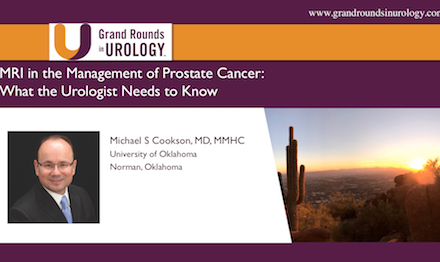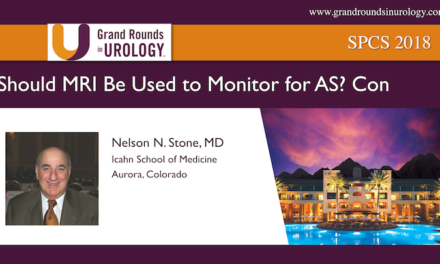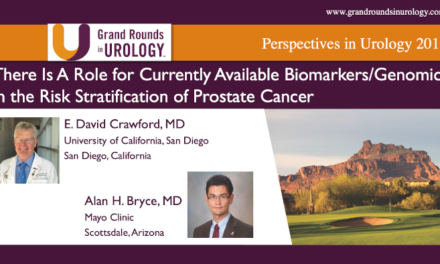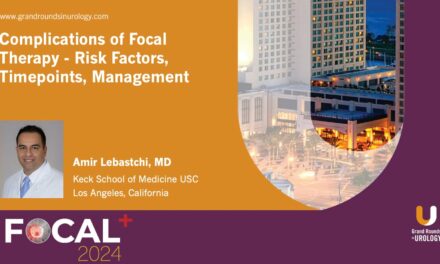Daniel P. Petrylak, MD, presented “Efficacy of Enzalutamide Plus ADT in Men with De Novo (M1) mHSPC Versus Progression to mHSPC: Post Hoc Analysis of the Phase III ARCHES Trial” during the 31st International Prostate Cancer Update in July 2021 in Snowbird, Utah.
How to cite: Petrylak, Daniel P. “Efficacy of Enzalutamide Plus ADT in Men with De Novo (M1) mHSPC Versus Progression to mHSPC: Post Hoc Analysis of the Phase III ARCHES Trial.” July 2021. Accessed Apr 2025. https://grandroundsinurology.com/efficacy-of-enzalutamide-plus-adt-in-men-with-de-novo-m1-mhspc-versus-progression-to-mhspc-post-hoc-analysis-of-the-phase-iii-arches-trial/
Efficacy of Enzalutamide Plus ADT in Men with De Novo (M1) mHSPC Versus Progression to mHSPC: Post Hoc Analysis of the Phase III ARCHES Trial
Daniel P. Petrylak, MD, Director of Genitourinary Oncology, Professor of Medicine and Urology, Co-Leader of Cancer Signaling Networks, and Co-Director of the Signal Transduction Program at Yale University Cancer Center in New Haven, Connecticut, presents data analysis from the phase III ARCHES trial showing the efficacy of enzalutamide (ENZA) plus androgen deprivation therapy (ADT) in men with metastatic hormone-sensitive prostate cancer (mHSPC). He asserts that urologists should be using next generation anti-androgens more often, citing the fact that only about half of patients are being offered such therapies at the time of mHSPC diagnosis. Dr. Petrylak outlines three reasons for this, including lack of access (driven by high cost and staffing availability), lack of understanding of the data, and lack of education. He then summarizes the ARCHES trial specifications, patient characteristics, and the primary endpoint radiographic progression-free survival (rPFS) data, which demonstrate favored outcomes with ENZA combined with ADT, while specifying that mature overall survival (OS) data is not yet available. Dr. Petrylak then discusses secondary endpoint data, which demonstrate that time to prostate-specific antigen (PSA) progression was significantly better in patients who received ENZA and ADT; similarly, ENZA and ADT reduced the risk of starting a new antineoplastic therapy by 72 percent compared with a placebo and ADT. Data also showed patient benefit in terms of time to first symptomatic skeletal event (SSE) as well as time to castration resistance. Dr. Petrylak addresses the question of disease volume in determining which patients ought to receive these next-generation treatments. He examines rPFS across patient subgroups, from patients with just one metastasis all the way up to those with over six metastases, and asserts that all patients across these groups benefited from the ENZA and ADT therapy, dispelling myths that low-volume patients should not be receiving next-generation treatments. Dr. Petrylak concludes that, for patients with castration-sensitive prostate cancer (CSPC), ENZA used with ADT improves rPFS over ADT alone and that the effect is consistent over all volumes of disease, again stipulating that the OS data is maturing, with additional data expected later this year.
About The 31st Annual International Prostate Cancer Update:
The International Prostate Cancer Update (IPCU), founded in 1990, is a multi-day CME conference focused on prostate cancer treatment updates with expert, international faculty. It is led by expert physicians and is designed for urologists, medical oncologists, radiation oncologists, and other healthcare professionals involved in the diagnosis and treatment of prostate cancer. Dr. Petrylak delivered this educational activity during the 31st iteration of the meeting in July 2021 in Snowbird, Utah.
ABOUT THE AUTHOR
Daniel P. Petrylak, MD, leads the genitourinary cancers medical oncology team at Smilow Cancer Hospital as director of the genitourinary cancer research group, professor, and co-director of the Cancer Signaling Network program. Dr. Petrylak joined Yale from Herbert Irving Cancer Center at Columbia University Medical Center with New York-Presbyterian Hospital, where he served as Professor of Medicine (Medical Oncology) and Urology and began his appointment in September of 2012. After serving for more than 20 years as the advanced bladder chair for SWOG, Dr. Petrylak is now the Vice Chair of the Genitourinary Committee.





